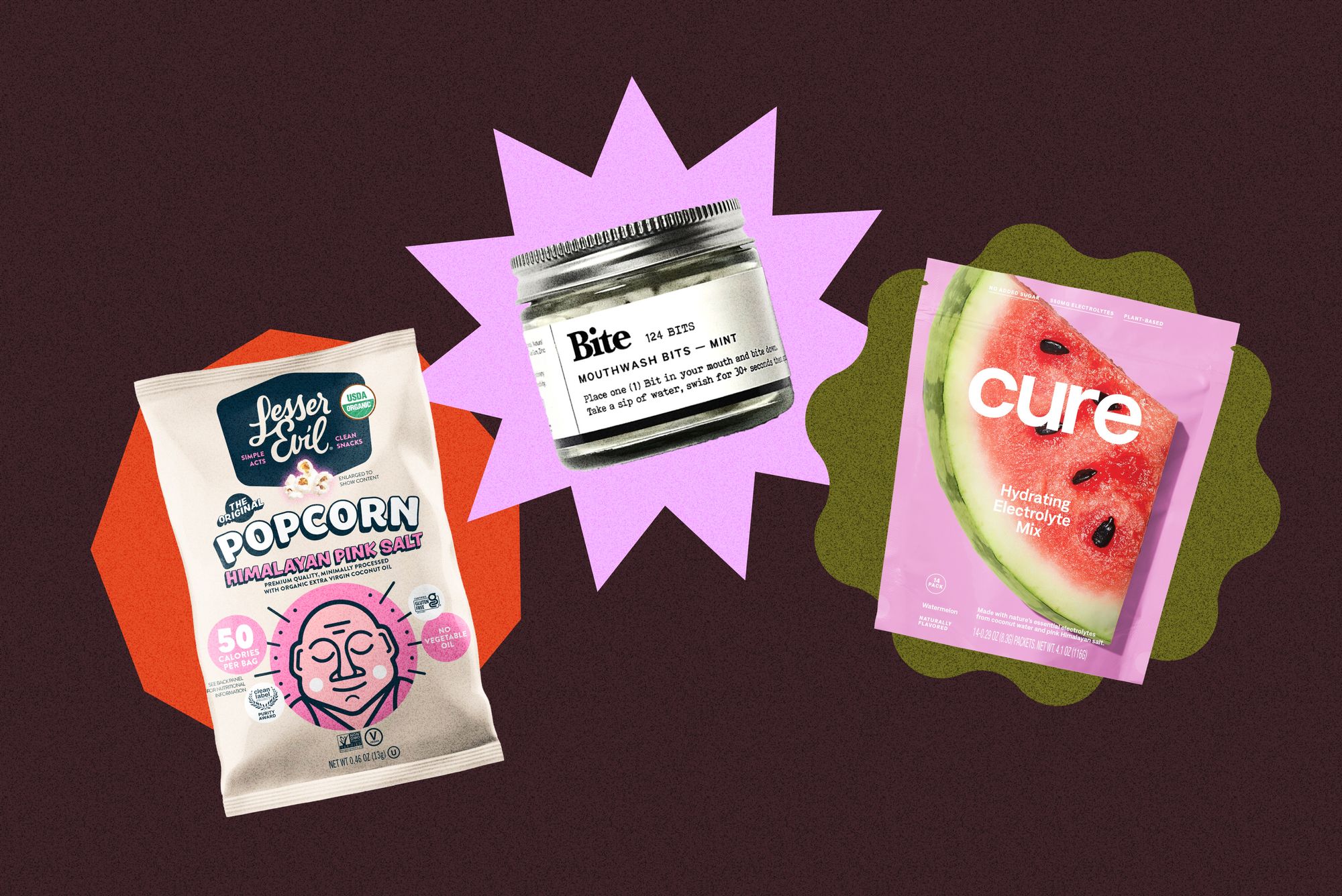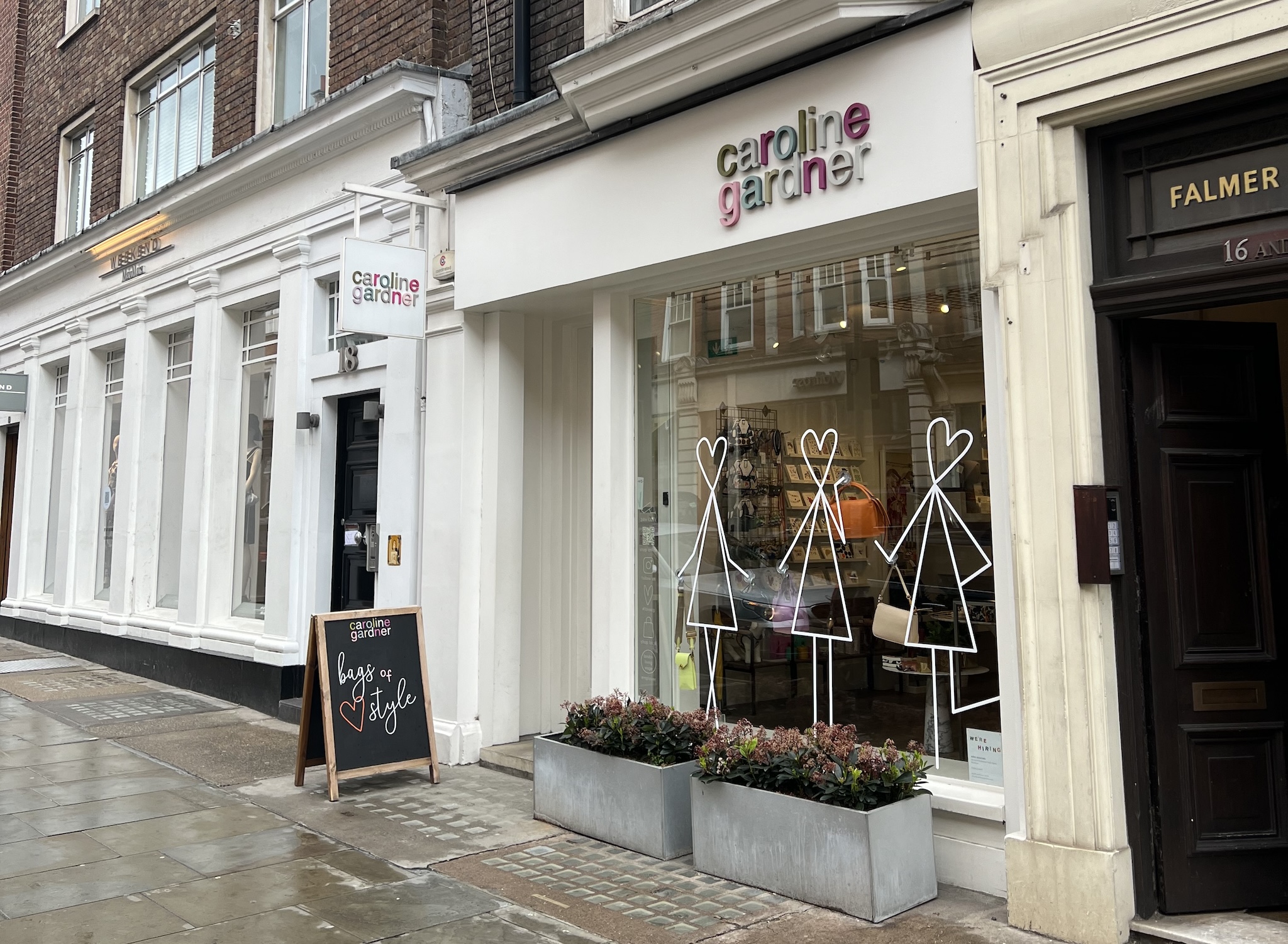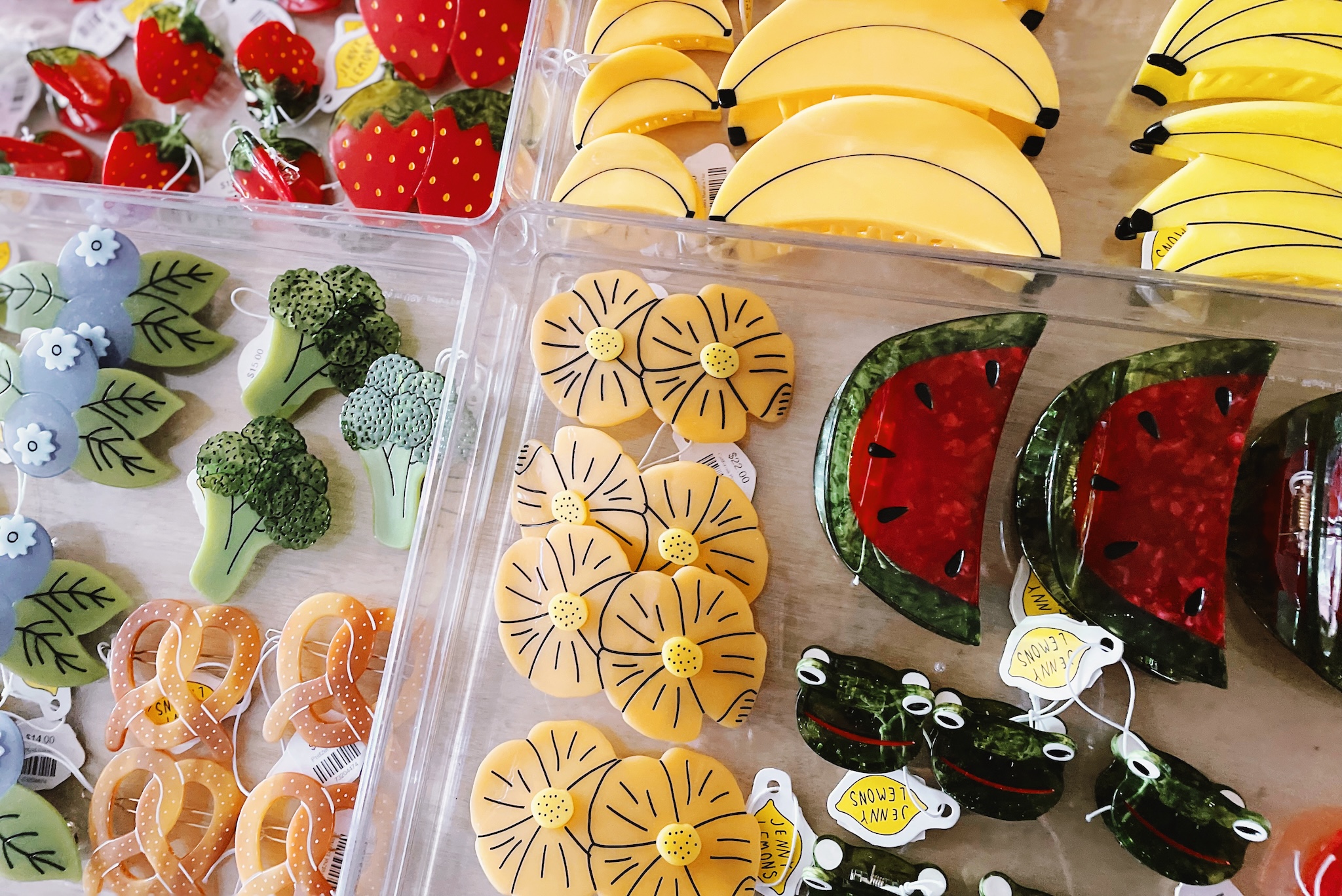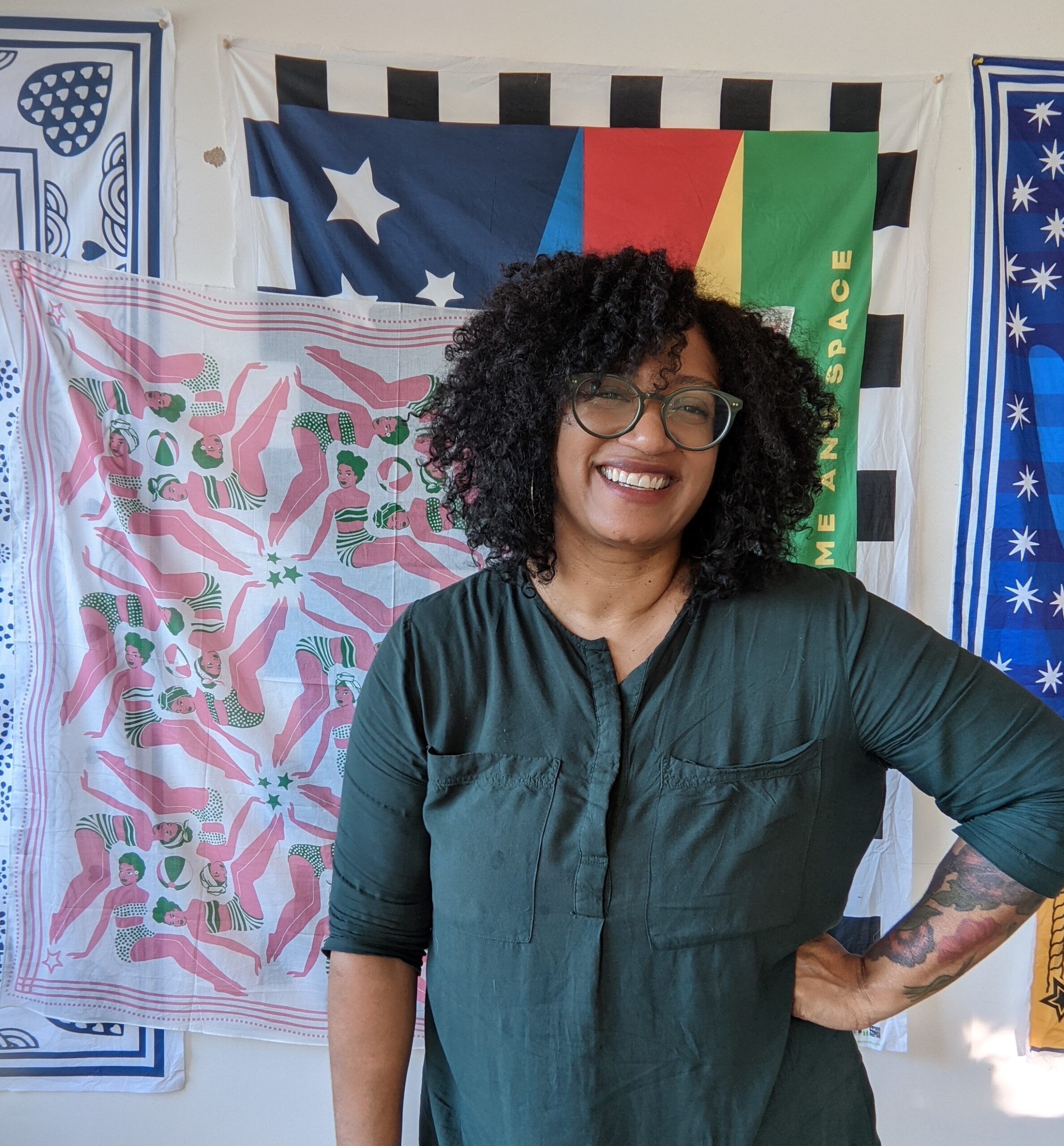
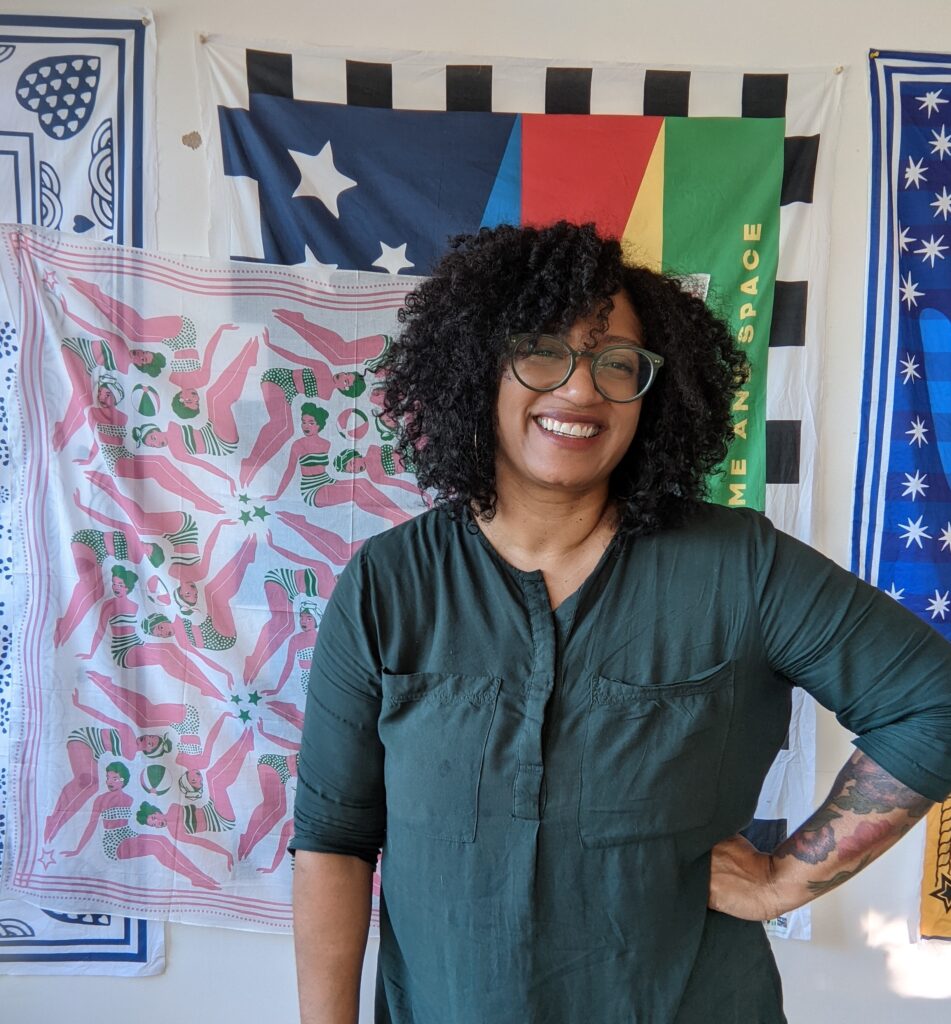
All photos courtesy of All Very Goods
This February, in recognition of Black History Month in the U.S. and Canada, we’re sharing the work and stories of some of the many incredible entrepreneurs from the Black community on Faire.
This week, we’re highlighting All Very Goods, an artful accessories company based in Washington, D.C. Founder and owner Ama Schulman uses her passion for design to create bright and eye-catching bandanas, tote bags, and prints that celebrate Black culture and serve as tools for self-expression. We spoke with Ama about self-confidence, the inspiration behind her designs, and how she views representation in her work.
The confidence to begin
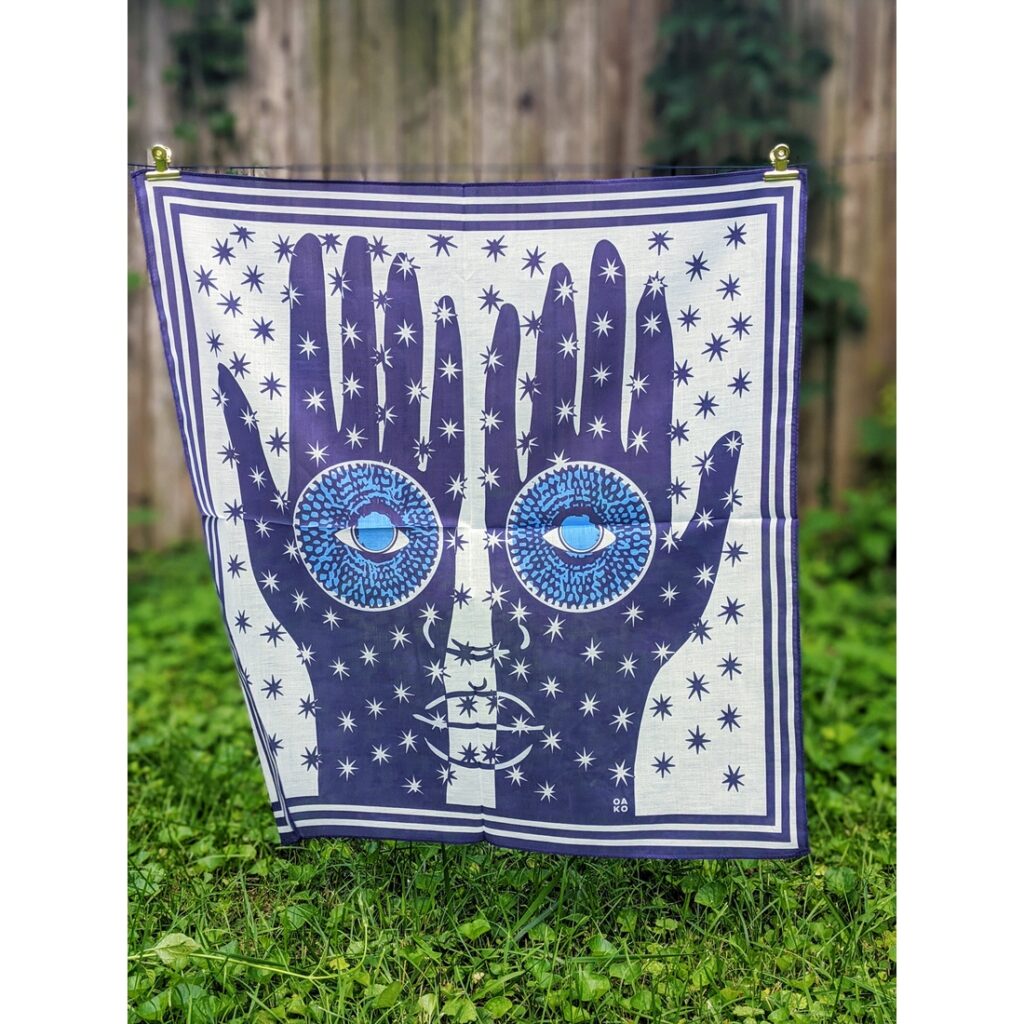
For Ama, designing and creating has always come second nature. “Designers have to have that gene that makes you want to take things apart and put them back together. I’ve always had that,” she said. Her passion for design combined with her natural entrepreneurial spirit made the idea of opening her own business appealing. Armed with formal design training, she put her skills into action three years ago when she decided to take the leap to start her own part-time business.
Ama began designing small pieces like enamel pins in her spare time between her day job as a retail manager. “I pretty quickly realized that there wasn’t a lot of stuff that I was making already out there in the world,” she said. She soon had the opportunity to dedicate all her time and effort to the business, and she decided to take the leap.
“The biggest challenge was having the confidence in myself to just get started,” she said. “It’s so easy to talk yourself out of it.” Once she got going, Ama quickly found that her problem-solving mind stepped in to help any other hurdles that came her way, and within six months she was able to make a living off of working for herself. Since then, Ama has expanded her product range from pins to thoughtfully designed bandanas, prints, and totes. In 2020, she joined Faire to further expand her business and sell her products to small businesses around the world.
Gathering inspiration
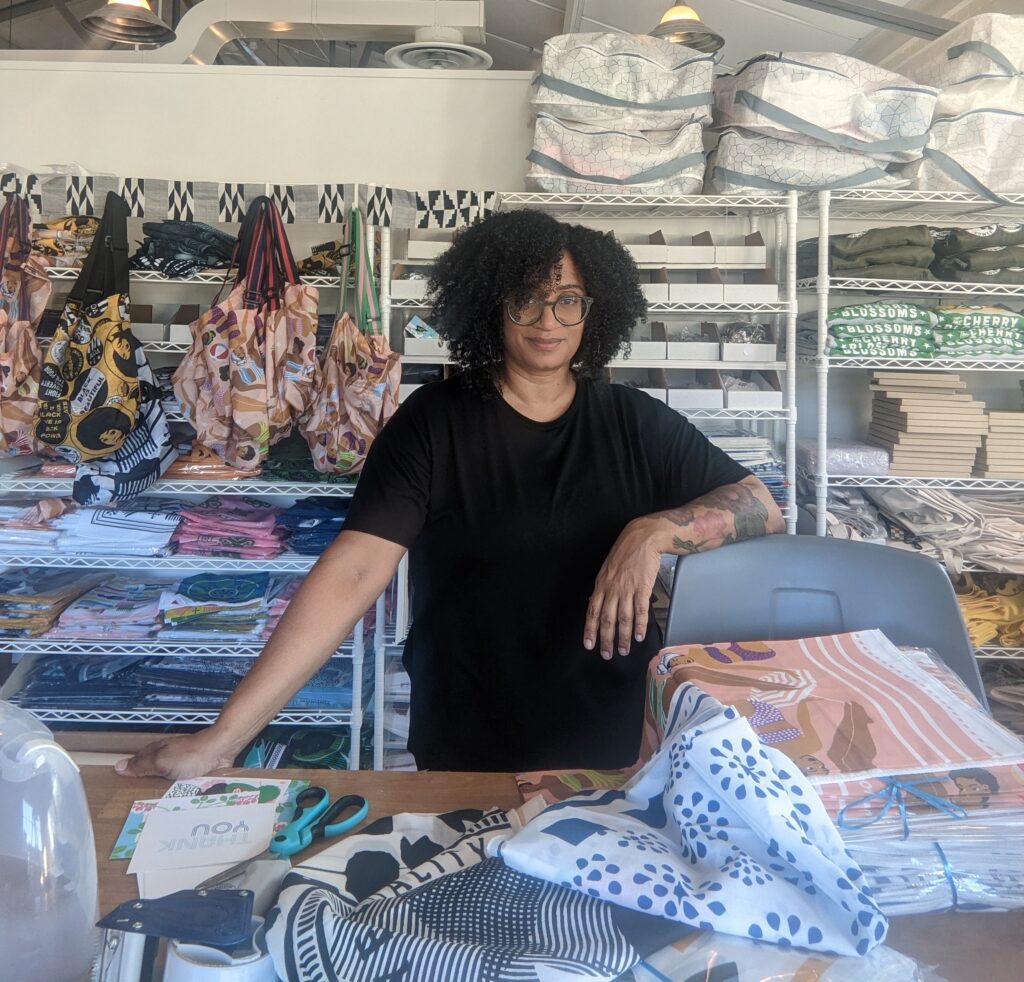
Ama finds inspiration for her designs in a multitude of places, from her bi-continental upbringing and her desire for equality to African storytelling and craft making. Ama’s designs stem from a philosophy of designing not for the world we currently live in, but a world that could be. “I start by thinking: what if lack of representation wasn’t an issue? What would my products look like? I feel like if I can design products for the world that I want to see, I can help bring that world into existence.”
Ama aims to create work that portrays resilience and joy over hardship. “I try to tell the stories of Black people and Black life in an honest way, but I don’t always focus on Black struggle. I want my designs to be joyful.”
When it comes to the intricate patterns and details in her designs, Ama draws inspiration from her own experience and childhood. As a child, she lived with her parents in Chad and several other African countries. She would later go off to boarding school in Massachusetts, giving her the unique experiences of living a bi-continental life split between the United States and Africa. “My upbringing gave me a different way of seeing in general, and I lean on that when I create my designs,” she said. “A lot of the symbols I use come from textiles that I remember my mom wearing in Africa or patterns I have seen in my travels.”
Impactful designs
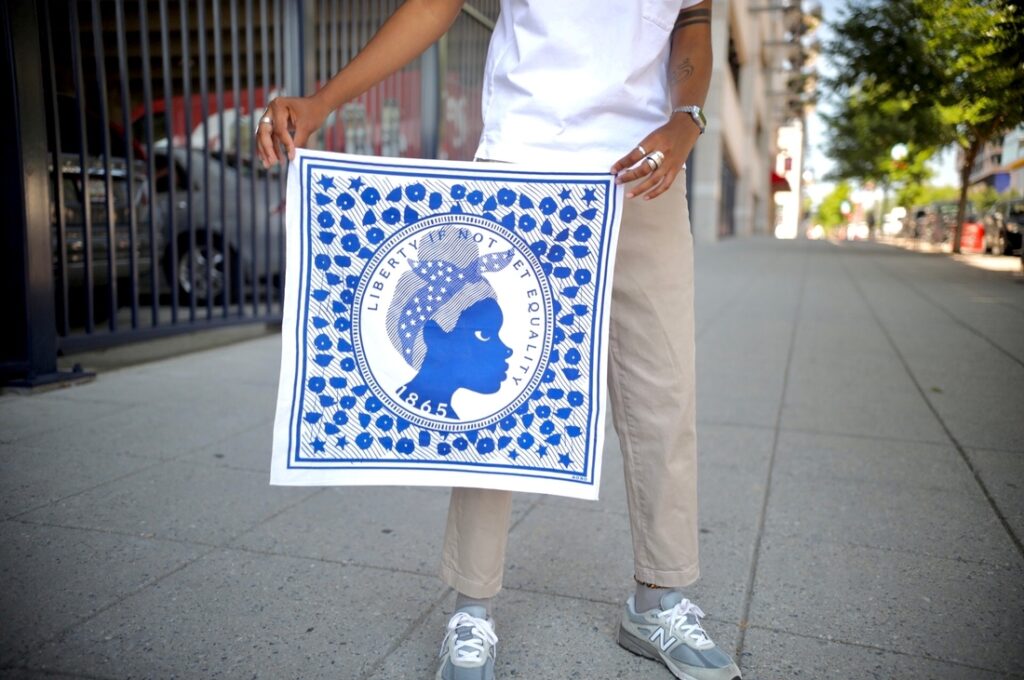
Today, one of Ama’s greatest hopes is that customers can see parts of themselves in her work—especially those who aren’t able to see themselves represented elsewhere. Ama is intentional about focusing on representation and strives to make underrepresented communities feel like their stories are just as important as everyone else’s.
She also hopes that customers can use her work as a powerful form of self-expression. “I want people to feel like whatever I’ve designed becomes part of their story. If you grab one of my bandanas and put it on, I want you to feel like you’re wearing something that helps you present to the world who you are and who you want to be.”
Seeing her work brought to life through her customers is also what makes owning her own business so rewarding. “When someone puts something on that I made and it looks so good on them, that’s definitely the best part.”
Celebrating Black History Month
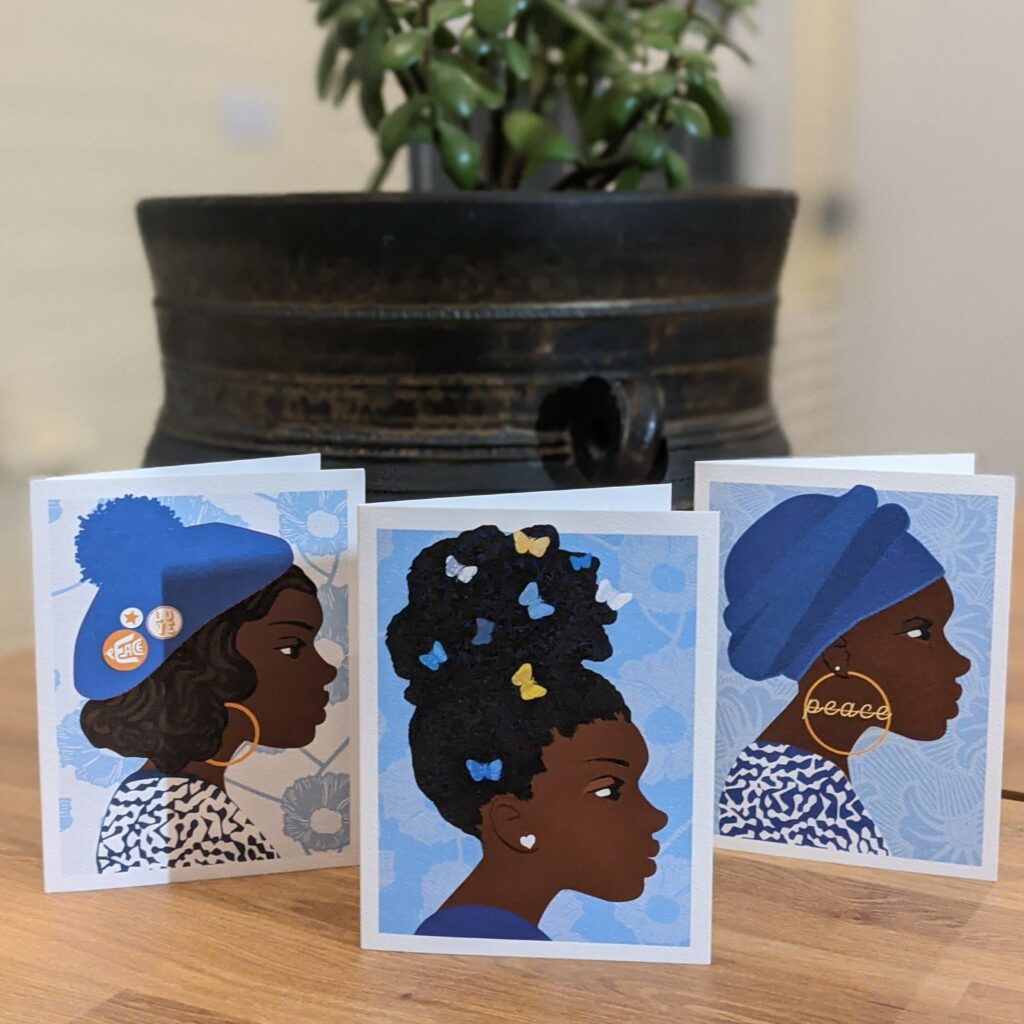
This year, to honor Black History Month, Ama is sharing a new post on her Instagram every day spotlighting lesser-known Black designers throughout history. In the past, however, Ama felt friction with the concept of Black History Month. “I was cynical for a while, because Black history is American history, and I felt Black History Month relegated Black history to only 28 days.” Now, Ama sees this month as an opportunity to amplify these important historical stories, and to highlight businesses and causes that may be missed throughout the rest of the year.
For those looking to support other Black-owned businesses, Ama says the most important thing consumers can do is shop from them—ideally more than once and year-round. “You have to be deliberate with your shopping and make the commitment to go back to the business after you find it the first time,” she said.
She also emphasized knowing the differences between shopping from small businesses and shopping from large corporations. She said it’s important that consumers remember to be patient and understanding when shopping small. “We’re not Amazon,” she said. “Your order won’t arrive within two days.”
Moving forward and reflecting
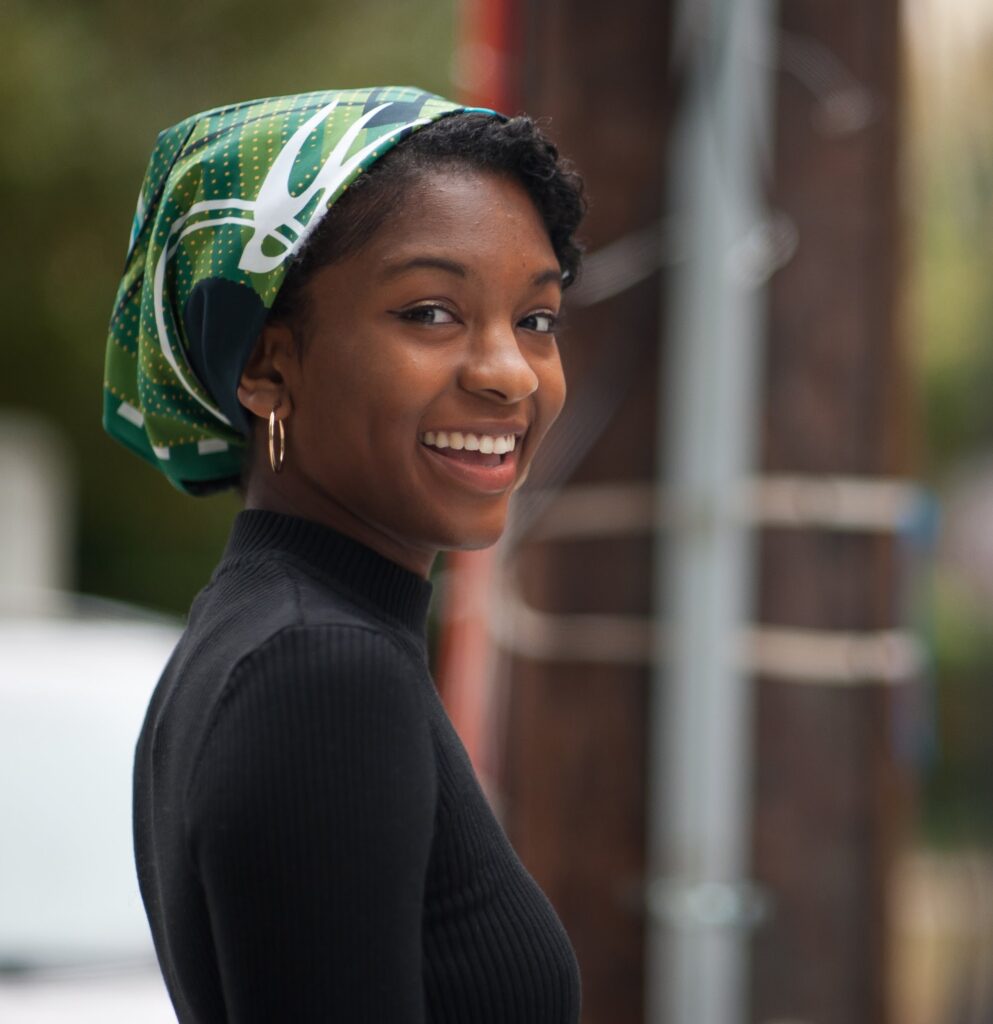
Now that the work of wanting to start her own business is out of the way, Ama’s next hurdle to overcome is figuring out where she’d like her business to go from here. “I’m trying to figure out how to grow in a way that feels authentic to me,” she said. She hopes to expand her product line and eventually have a team of people who can help her with the business. “Now, I’m wrestling with the idea that I can actually hand things off to someone else,” she said.
This part of the process, Ama says, is nowhere near as challenging as mustering up the courage to start her business in the first place. “My advice to anyone hoping to start their own business is to not let your insecurities or fear of failure stop you from starting,” she said. “You’re going to make mistakes. Just embrace it.”

